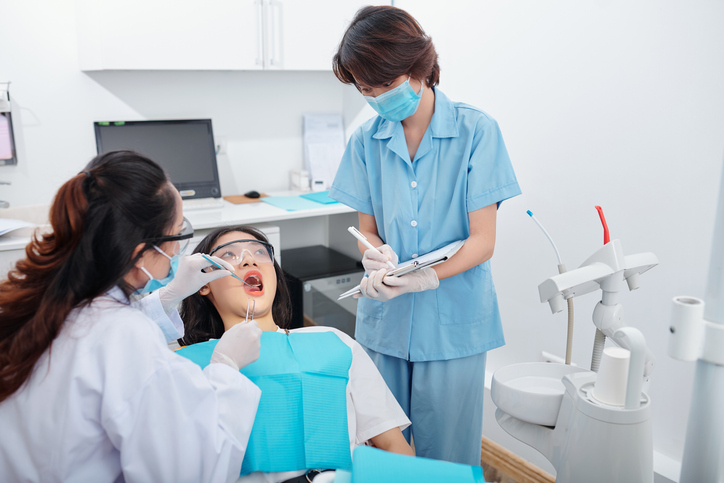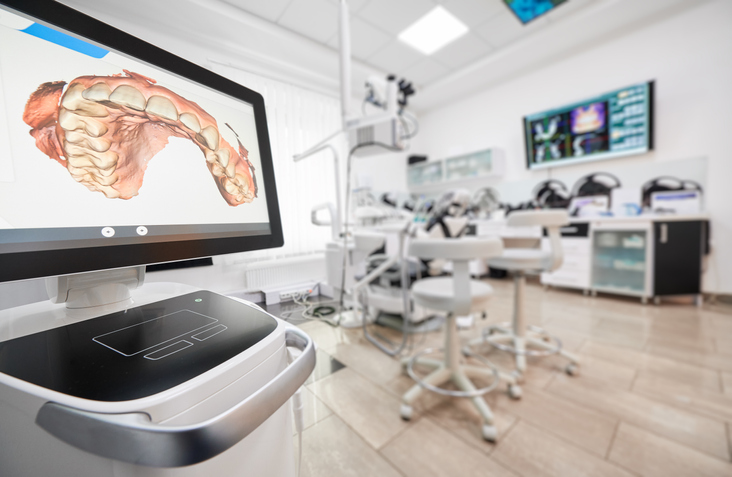Category: Dental Assistant
Why Hands-on Training Is Important Throughout Dental Assistant School
March 11, 2022A professional dental assistant needs to be skilled in assisting dentists with patient oral care. That’s why aspiring dental assistants should value an education that provides hands-on training and experience in the dental assisting profession. Hands-on training provides dental assistant students with the ability to perform the duties assigned to them during their careers.
At Medix College, you’ll get to practice providing chair support to a dentist and preparing patients for dental examinations. You’ll also learn how to take preliminary impressions, the application and removal of dental dams, coronal polish, fluoride application and much more–under the supervision of a dentist and the dental assisting faculty at Medix College.
Read on to discover how hands-on training can make a difference in your career!
Hands-on Dental Assistant Training Builds Your Confidence
When you want to pursue a career as a dental assistant, learning through theory alone may not always be enough. Studying the practical work of being a dental assistant is best when hands-on training is involved. Hands-on training removes the doubts you may have when learning new materials and reading how certain dental procedures work. Instead of being unprepared when dealing with patients and providing oral care, your hands-on dental assistant training provides you with real-work experience as you assist with patients under the supervision of a dentist. This builds your confidence and prepares you to put your foot in the door without a doubt when starting your new career. After completing the program, you won’t question your own expertise or the value you bring to the dental industry.
Watch and Learn During Hands-on Training
Traditional methods of learning like reading a textbook or watching videos aren’t enough when it comes to becoming a dental assistant. Hands-on training at a good dental assistant college allows you to be right there in the action. You’ll be involved in the oral care process under the guidance of your supervising dentist and the dental assisting faculty. You’ll get to watch how a dentist educates patients, uses pit and fissures sealants, desensitizes and conducts radiographs, takes and develops x-rays and more. As you watch and learn, you’ll have the chance to apply what you’ve observed and improve on any mistakes you make during your training.
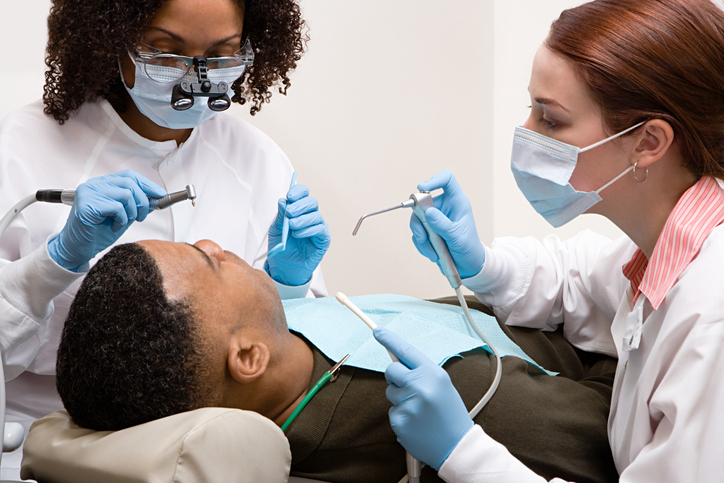
An Opportunity for a Personalized Learning Experience
When you learn through hands-on training, you’ll enjoy the added benefit of receiving one-on-one guidance and instruction from experienced dentists and dental faculty members. This is a valuable asset to take advantage of during your dental assistant training, since other forms of learning may not provide the same level of hands-on support.

As a dental assistant student, you’ll be in direct contact and work closely with your supervising dentist. You’ll get to ask questions, receive feedback and gain expert advice that you can take with you when you start your career. At the same time, personalized hands-on training may help you address any concerns, issues, or doubts that you have–as your supervising dentist and fellow students share their experiences with you.
Interested in dental assistant school?
Contact Medix College to learn more!
Passionate About Oral Health? Why 2022 is a Great Time to Enrol in Dental Assistant College
January 07, 2022The year 2022 is just around the corner. Now is the time to reflect on your future, including your studies and career goals. Having a fulfilling career provides you with the stability to pursue everything else you would like to achieve. For this reason, it’s noteworthy to consider becoming a dental assistant student as part of your new year goals. There are great prospects that await you in this profession, especially if you’re passionate about oral health.
At Medix College we provide aspiring dental assistants with the hands-on experience and professional partnerships that deliver a fulfilling career. We follow the dental industry closely to provide you with the latest skills and knowledge to succeed. Read on to learn why 2022 would be a great year to start your training as a dental assistant.
Professional Dental Assistants Are in Demand After Completing Dental Assistant Training
Aspiring dental assistants should not worry about their career prospects or job security within the dental industry; as long as there are individuals requiring dental services, then there will always be a need for professional dental assistants to help with the daily operations of the clinic. When you complete your dental assistant training at Medix College, you will graduate with the knowledge and expertise to provide chair support to dentists, prepare patients for dental examinations, maintain instruments and equipment, perform clerical duties, develop x-rays and much more.
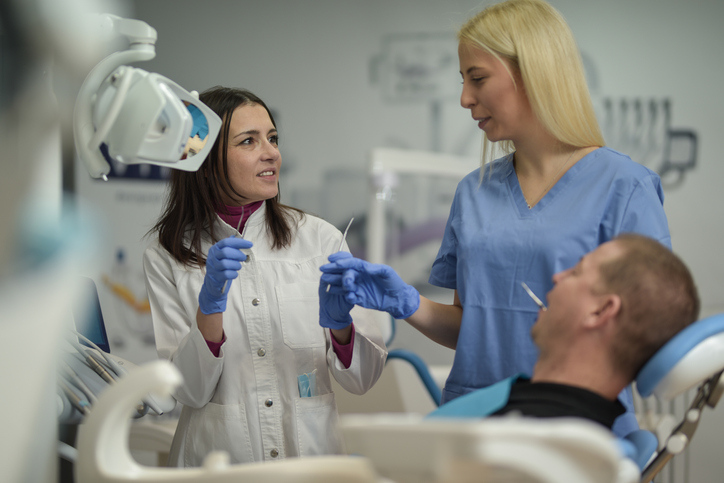
Oral Health Is Linked to Overall Health
Research increasingly indicates that the health of the mouth and body are linked, with several oral related issues sharing a commonality with other chronic health issues. As more research is conducted linking oral health to the overall health of a person, there will always be demand for professional dental services and dental assistants. Individuals who neglect their oral health may develop gum disease and are twice as likely to develop health complications. For instance, gum disease is now being linked to heart disease, diabetes, respiratory disease, and rheumatoid arthritis. When you study at a dental assistant school like Medix College, you’ll be prepared to educate patients on their dental health and provide preventive dental services throughout your career.

Growth Opportunity Within the Dental Industry
After you start your career as a dental assistant, you will be introduced to a fast-paced environment that will develop your skills, as no two days will be the same. You’ll find yourself involved in different aspects of the dentistry field, and with that, you’ll gain valuable insight into how to run a dental clinic. Finally, as you become an experienced dental assistant with knowledge of the intricate details of the industry, you will have the opportunity to develop your career aspirations. With the right training and education, you can pursue more senior positions, such as a dental office manager or dental hygienist.
Are you ready to enrol in dental assistant college?
Contact Medix College to get started!
Tips for Crafting a Great Resume After Dental Assistant Training
September 03, 2021If you’re just starting to think about starting your job search after completing your dental assistant training, creating a resume is probably one of the things on your mind. A great resume is the key to success when it comes to making it to the interview process–where an employer will be able to get to know you better as a candidate. Once you begin applying for jobs after graduating from a dental assistant program, you’ll be using your resume to show potential employers that you have the skills, qualifications, and experience necessary to be a successful addition to their dental practice.
Below, discover some useful tips which will help your resume to stand out during your job search!
Include These Key Skills That Employers Look for in Graduates of Dental Assistant College
As a dental assistant, you’ll be responsible for completing a number of different duties within a dental office. From administrative tasks to assistance with dental procedures to medical history of intake, there are a few key skills–both hard and soft–that you’ll want to showcase in order to succeed as a dental assistant. After completing your dental assistant training, consider adding these skills to your resume:
Hard Skills:
- Instrument sterilization
- Patient education on oral health practices
- Assistance with X-rays
- Preparation of patients for dental procedures
- Tableside assistance
Soft Skills:
- Organization
- Attention to detail
- Communication skills
- Multitasking capabilities
When you include these skills on your resume, employers will know that you have what it takes to get the job done.
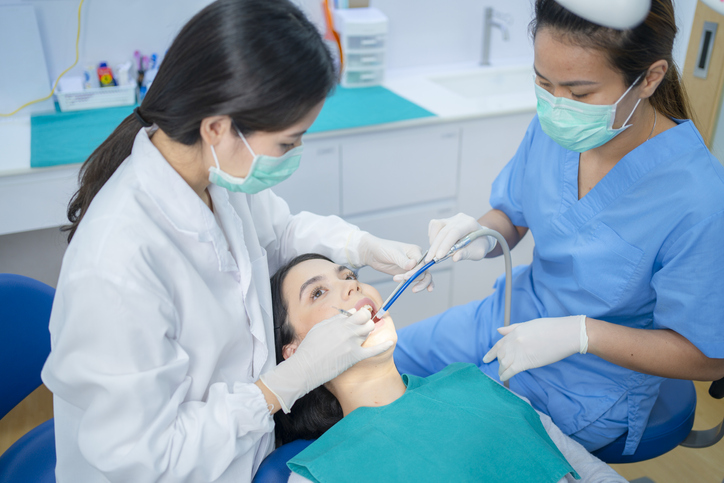
Mention Your Relevant Work Experience
If you’re just completing dental assistant college, you might be tempted to assume that you don’t have any relevant work experience to include on your resume. However, including previous work experience is almost always valuable in any resume, even if the job you had is different from the job you’re applying for. On your resume, you can include any work experience where the skills you built are relevant to your career as a dental assistant.
For example, if you have volunteering experience, you might want to include it in your resume if your responsibilities demonstrate your ability to communicate effectively or organize a large volume of information. Even if you don’t have extensive experience in the dental field, a look through your job history should help you to identify different opportunities that helped you to build some of the same skills required of dental assistants.

Avoid these Common Mistakes
We’ve talked about the resume “do’s,” but it’s also worth touching on the resume “don’ts,” in order to ensure that you avoid making an unnecessary mistake which could cost you a career opportunity. For one, it’s important to always tailor your resume to the particular job you’re applying for. Instead of sending in the same resume to every job you come across, take a look at the job description to see if there are any particular skills or qualities that an employer is looking for in the dental assistant they hire.
When you emphasize these particular qualities and skills throughout your resume, an employer will be more likely to view you as a good fit for the position. Another important mistake to avoid is forgetting to properly format your resume. Your resume should be clearly labeled by section in chronological order, with your contact information at the top, and should be no longer than one page.
Ready to launch a career in the healthcare field?
Enroll in dental assistant school at Medix College today!
Attending Dental Assistant College? Ensure a Successful Career by Building These 4 Skills
August 06, 2021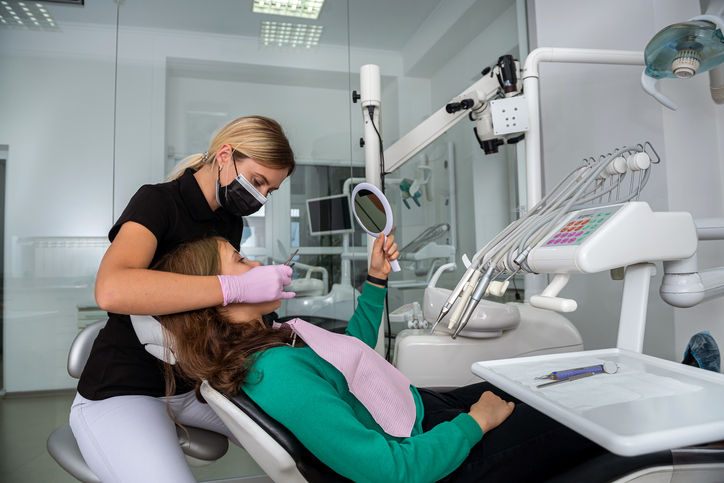
Dental assistants work in close liaison with dentists to prepare and treat patients. During examinations and procedures, dental assistants may take X-rays, perform office management tasks, and educate patients on proper oral hygiene and care. The work of a dental assistant is dynamic and hands-on. They are responsible for ensuring the comfort and care of the patient, assisting with dental work, and maintaining the operational efficiency of the whole practice.
As they perform a variety of tasks, it’s important to develop a broad and applicable skill set–from technical abilities to customer service skills. With the right skills to complement your practical training, you’ll be ready to take up positions in private dental offices, university clinics, dental supply companies, public health centres, educational institutions, and more! Let’s take a closer look at some key skills you’ll need for this type of work.
1. Technical Skills from Dental Assistant School
Although dental assistants work under the supervision of dentists, they must have a strong foundation in dental medicine in order to assist in both routine practices and complex dental procedures. Nowadays, most employers demand that dental assistants hold an official qualification along with relevant skills and extensive practical training.
Dental assistant school at Medix College focuses on field-related skills and knowledge–with courses covering: general dental sciences, clinical dental assisting, preventive dental procedures, pharmacology, and emergencies. With professional training, graduates will be able to perform the technical duties of a dental assistant, including: taking and developing x-rays, sterilizing dental materials and instruments, and preparing exam rooms.
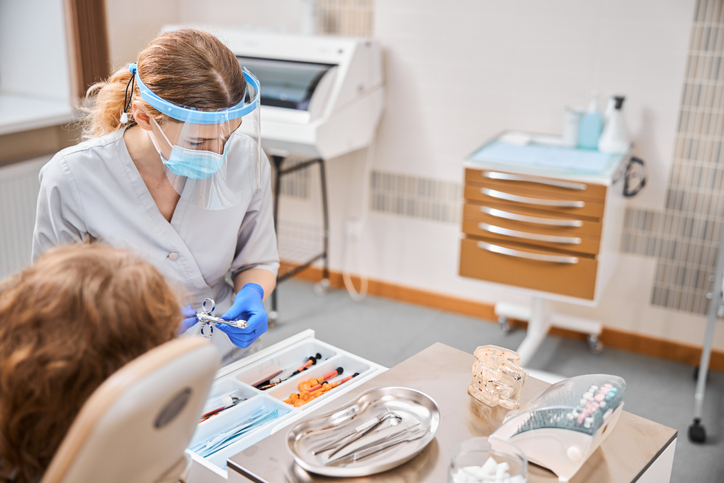
2. Some Administrative Skills Are Needed
Dental assistants are partly responsible for completing administrative tasks to ensure the efficiency and productivity of a dental practice. These tasks may include answering phones, scheduling appointments, maintaining patient records, and ordering supplies. This aspect of the job is much the same as other office roles, in which communication and basic computer skills are required.
In the case of a dental office, strong time management and organization skills are essential–along with a working knowledge of common medical records systems and technology. Students in dental assistant college will hone their administrative skills in the context of a dental practice–with programs focusing on reception and clerical duties, and scheduling and invoicing dental exams.

3. Practice Attention to Detail
To ensure patient safety and comfort in a dental office, attention to detail is an important skill. A detail-oriented person will be able to concentrate on multiple tasks to ensure they are completed accurately and in accordance with strict protocols. When it comes to administrative duties, attention to detail will help dental assistants to record and maintain patient information with precision. In the exam room, a dental assistant should pay close attention to their patient to identify whether they are nervous or in pain. By developing a good eye, you can ensure that patients have a comfortable, efficient, and positive experience at a dental practice.
4. Work on Building Strong Communication Skills
Dental assistants are often one of the first points of contact for a patient during their appointment. They may be responsible for taking a patient’s medical history, breaking down complex procedures, and advising patients on proper oral care. Strong communication skills in these duties can help dental assistants to develop a positive and productive rapport with patients–gathering important information and evaluating their level of comfort. Not to mention, dental assistants also work in close collaboration with other dental professionals. The ability to follow instructions, communicate information, and provide feedback will prove to be a valuable asset when working in a professional team. With the relevant skill set, you can gain the trust of both your patients and your fellow co-workers.
Are you ready to start your intraoral dental assistant training?
Contact Medix College to learn more about our program!
5 Tips To Help Patients Prevent Gum Disease After Your Dental Assistant Training
May 14, 2021
Gum disease, also known as periodontal disease, is one of the most common oral health problems. According to the Canadian Dental Association, seven out of ten Canadians will develop gum disease at some point during their lives. So what is gum disease, and how can it be prevented?
Gum disease is caused by a buildup of bacteria between the gums and the teeth. The gums become inflamed as the bacteria in plaque grows. If left untreated, this inflammation can lead to the deterioration of the gums and bone structure within the mouth. Gum disease, while common, is preventable through the maintenance of good oral hygiene and a healthy lifestyle. If you’re considering a career as a dental assistant, read on to discover some tips you can pass on to patients–in order to prevent the development of gum disease and promote oral health.
1. Ensure Patients Brush and Floss to Control Plaque
Plaque carries bacteria, and the buildup of plaque can inflame the gums, eventually leading to gum disease. In order to remove plaque, patients must ensure that they are brushing and flossing regularly. Brushing for two to three minutes twice a day can prevent plaque from sticking to the teeth and remove food debris, but it’s important that patients brush along the gum line instead of scrubbing the gums directly. Direct contact with a toothbrush can cause the gums to recede instead of promoting healthy alignment with the teeth.
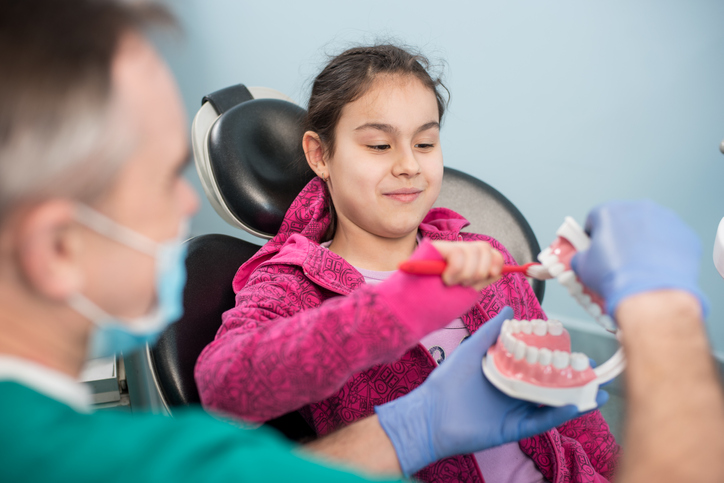
After completing your dental assistant training, you will also need to instruct patients to floss daily. Flossing removes plaque from places that a toothbrush can’t access, such as in between the teeth. By brushing and flossing regularly, patients can reduce their risk for developing gum disease and control the levels of plaque on their teeth.
2. Advise Patients to Eat a Healthy Diet
Our diet has a significant influence on the health of our gums. While starchy or sugary foods and beverages promote bacteria growth and lead to plaque buildup, other foods can boost immunity and prevent the development of gum disease. Patients should be sure to eat plenty of nutrients, minerals and vitamins in order to keep their gums healthy. Foods rich in Vitamin A, C, and E are especially important. Vitamin C has been shown to prevent and cure gum disease–with properties that prevent bleeding, receding, and swelling of the gums. Leafy greens and nuts contain Vitamin E, which can work to repair tissue damage. When eating a balanced and healthy diet full of fruits and vegetables, patients can improve their oral health and prevent gum disease.

3. It Is Important for Patients to Drink Plenty of Water
As you may learn in dental assistant school, drinking water increases the levels of saliva in the mouth. Saliva plays an important role in flushing out food debris and removing bacteria, both of which can lead to the infection of the gums. Simply by staying hydrated throughout the day, patients can enhance their oral health and ward off disease-causing bacteria.
4. Ensure Patients Know to Avoid Tobacco Products
Using tobacco products can lead to many health problems, including gum disease and oral cancer. Tobacco products play a leading role in deteriorating gum tissues, leaving patients more vulnerable to the development of gum disease. If a patient is a smoker, one of the simplest ways they can prevent gum disease is by cutting down on their tobacco intake or avoiding tobacco altogether.
5. Help Patients Schedule Their Next Dental Visit
At a dental checkup, patients can not only have their teeth professionally cleaned, but dental professionals can examine them for any signs of gum disease. A professional cleaning is essential in removing additional plaque and debris in hard-to-reach places. Regular visits to the dentist also give patients an opportunity to catch gum disease and work to prevent it before it escalates. As a dental assistant, ensure that all patients are booked for regular appointments as a preventative measure against the development of gum disease.
Ready to begin dental assistant college?
Contact Medix College to learn more about our program!

Dental assistants have rewarding careers where they are able to improve the lives of others. If you’re excited by the idea of making others look and feel good through dental care, dental assistant training might be the perfect fit. Dental assistants work in dental offices, clinics at universities, supply companies, and health centres, as well as other environments. Whatever your goals are, a dental assistant career can offer you exciting opportunities and success.
If you’re thinking about training or have begun a program, you may be wondering what makes a good dental assistant. What are the personal qualities and skills that enable success in the field? From the hands-on tasks that dental assistants perform daily to the frequent interaction with different kinds of people, many qualities you likely already have can come in handy. Read on to learn more about what you can expect to help you as a dental assistant!
Qualities of a Top Dental Assistant
People Skills
- Helps make people feel more comfortable and safe
- Emotional sensitivity helps when people have pain or discomfort
- Being friendly helps clients have a better experience
- Conflict resolution and a calm approach improves interactions
Cooperation
- Essential for working with teams
- Helps the whole dental office provide excellent service
- Great for networking
Fun fact: Some of the most effective teams are made up of a combination of differences and like-mindedness. Diverse groups working towards common goals make for great teams!
Communication
- Understanding instructions
- Communicating efficiently with coworkers
- Listening to clients’ concerns
- Giving good feedback
- Asking questions to learn more
Dexterity
- Ability to work safely and accurately in tight spaces
- Competence with small tools and instruments
- Accuracy when using hand-eye coordination
Attention to Detail
- know the signs of an emergency
- Protocols must be followed strictly
- A proactive, observant attitude must be taken to ensure safety
- Sterilization and sanitation are extremely important
Organized
- Organized people are ready for unexpected events
- Multi-tasking is easier when organized
- Keeping tools and equipment in order helps things run smoothly
Sources:
https://www.daymarcollege.edu/blog/8-skills-make-good-dental-assistant
https://www.psychologytoday.com/ca/blog/cutting-edge-leadership/201402/five-surprising-facts-about-teams-and-teamwork
https://www.thebalancecareers.com/list-of-dental-assistant-skills-2062342
https://streamdentalhr.com/tag/organization-skills/
https://www.childrensdentalvillage.net/patient/resources/interesting-facts/
5 Surprising Benefits of Flossing for Those Considering Dental Assistant Training
March 19, 2021
Flossing is an essential part of maintaining good oral health, but it’s rare to meet a patient that flosses daily. In fact, according to a survey conducted by Statistics Canada, only 28% of Canadians floss at least 5 times a week. When considering the many benefits of flossing, this might seem like an alarming statistic, but if you want to become a dental assistant, you may have the power to help people to floss more. An important component of the job of dental assistants is to educate the patients they see about proper oral health practices.
Below are some benefits of flossing that you can mention to further educate patients on the importance of adding this step to their oral hygiene routine.
Those With Dental Assistant Training Should Know That Flossing Prevents the Buildup of Plaque
Plaque is a film that collects on the teeth as a result of bacteria in the mouth mixing with foods and drinks consumed that are high in sugar or starch. When interacting with food or drinks, these bacteria release acids that enable carbohydrates to be broken down. If the teeth are not flossed regularly, these acids, bacteria, and carbohydrates can form plaque, which sticks around the gums and between the teeth. If plaque is not removed, it can harden into tartar, the presence of which can increase a patient’s risk of developing gum disease. As a professional with dental assistant training, you can explain to patients that flossing regularly can prevent the buildup of harmful plaque and tartar.

Flossing Can Reduce Bad Breath
Another benefit of flossing is that it can work to reduce bad breath, or halitosis. Plaque contains bacteria, as does larger food debris, which can get lodged between the teeth. Unfortunately, this bacteria can emit an unpleasant smell. If a patient complains that their breath doesn’t improve after brushing, this could be a sign that flossing needs to be added into their oral hygiene routine. In tandem with brushing, flossing can remove a greater amount of plaque and food debris, keeping a patient’s mouth cleaner and helping to maintain fresher breath.
Cavities Can Be Prevented by Flossing
Cavities are a common but unfortunate occurrence for many patients. Cavities are often caused by plaque building up in between a patient’s teeth. Due to the design of a toothbrush, it’s often impossible for brushing alone to target all the plaque in and around the teeth. Therefore, it’s important to floss in order to remove plaque that is stuck in hard-to-reach places. The greater the amount of plaque on a tooth’s surface, the higher the risk of developing a cavity. By flossing daily, patients can reduce the amount of plaque on their teeth and reduce their susceptibility to cavities.
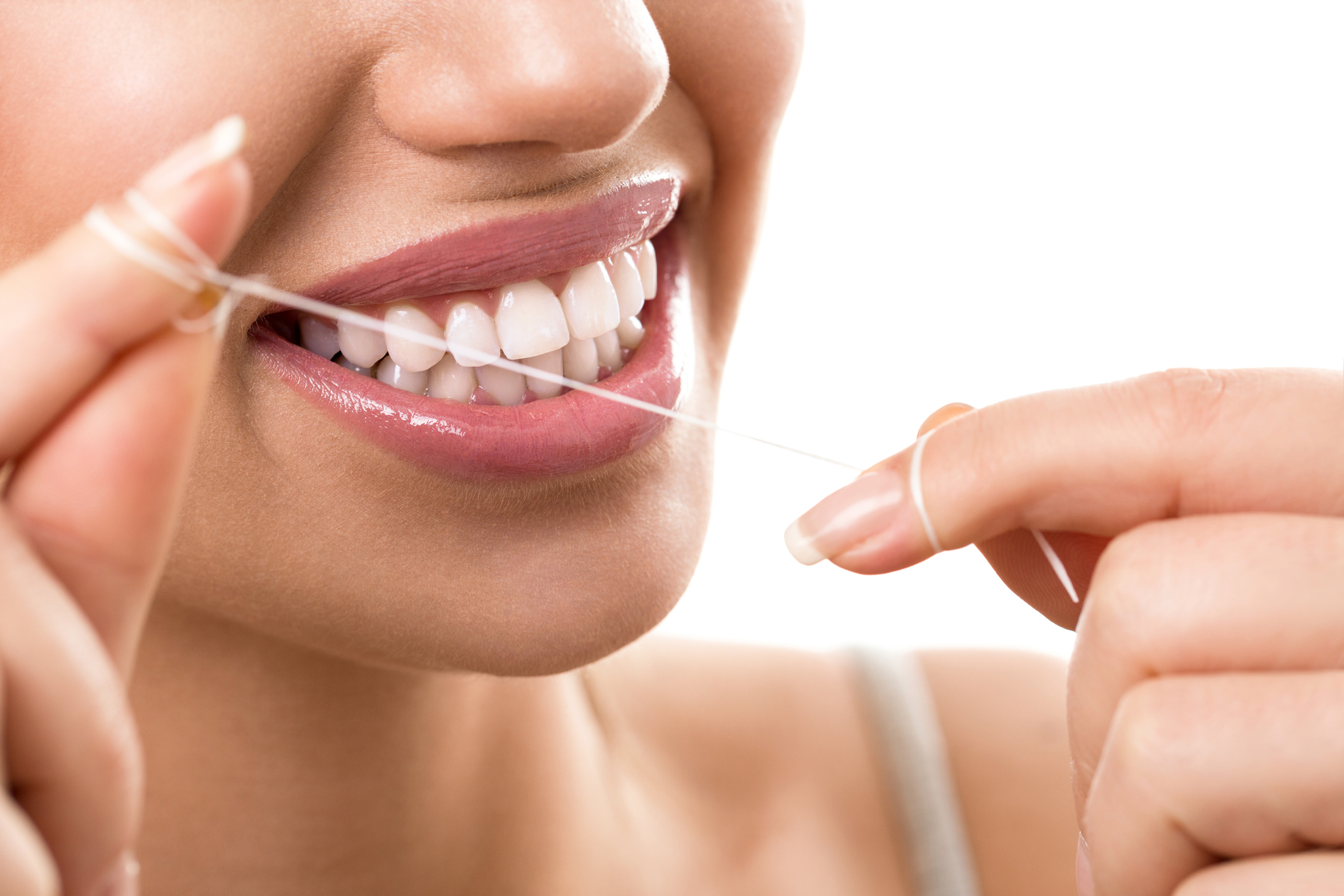
Flossing Lowers a Patient’s Risk for Gum Disease
Flossing daily can help patients to reduce their risk of developing periodontal (gum) disease. Gingivitis is the first stage of gum disease, with inflammation around the gums a prime symptom. Inflammation can be caused by excessive plaque or food particles. By removing these harmful substances, flossing can improve gum health, reducing inflammation, and preventing the development of gum disease. If left untreated, gum disease can lead to tooth loss, bleeding, and other oral health issues. After completing dental assistant school, you can help to reduce the prevalence of gum disease by informing patients of the preventative effects of flossing.
Flossing May Improve Heart Health
While flossing doesn’t have a direct effect on heart health, flossing does lead to a decreased risk of developing gum disease. Gum disease has been linked to both diabetes and heart disease, and by preventing gum disease through flossing, patients also have a greater likelihood of reducing their risk of developing these additional diseases. If flossing plays even a small role in preventing these diseases, it’s clearly a sensible move for patients to make the practice a part of their daily routine.
Are you ready to attend dental assistant college?
Medix College has the program for you. Start exploring your options today!
Is Fluoride Rinsing Necessary? A Look for Students in Dental Assistant School
January 29, 2021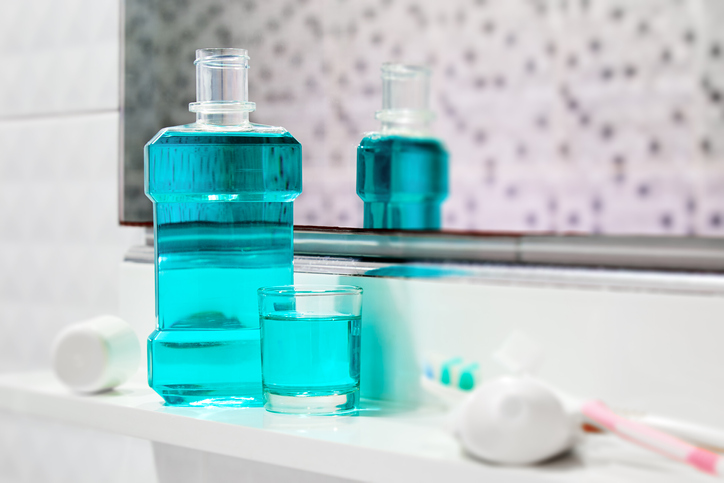
Fluoride is a natural mineral that can strengthen teeth and prevent cavities. It’s an essential ingredient found in various standardized oral hygiene products, ranging from toothpastes to mouthwashes—used to protect tooth enamel from bacteria that harms teeth and gums.
According to the World Health Organization (WHO), exposure to fluoride is a key component in preventing tooth decay. With that in mind, it’s worth taking the time to understand how fluoride treatments work and how they affect our dental health. This blog post will cover the basics of fluoride treatments as well as their benefits and side effects for students in dental training.
Exploring What Fluoride Products and Treatments Are All About
Fluoride treatments and products come in different forms with varying levels of concentration. Unlike the professional treatments provided in dental clinics, store-bought products typically contain lower levels of fluoride. They can be purchased in the form of fluoridated toothpastes and mouth rinses. Alternatively, dentists and graduates of dental assistant school can administer professional fluoride treatments through a concentrated rinse, foam, gel, or varnish—given through a mouthwash, put into a mouth guard, or applied directly to teeth via a brush.
Fluoride treatments can also be prescribed by a dentist, in which fluoride supplements are given to protect sensitive teeth that are highly susceptible to cavities. These treatments are meant to help strengthen teeth and improve dental hygiene. However, chronic use of highly-concentrated fluoride products can also have some negative repercussions.

A Closer Look at the Benefits and Side-effects for Those in Dental Assistant School
After completing your intra-oral dental assistant training, you’ll be able to educate clients on how best to maintain their dental health. Fluoride can be used to help both children and adults improve their dental health. In fact, one study found that children (up to the age of 16) who used fluoride varnishes were 43% less likely to develop cavities. Fluoride works by restoring tooth surfaces, effectively preventing (and, in some cases, reversing) tooth decay. In this way, it can help prevent gum disease and reduce tooth pain.
Despite these benefits, fluoride poisoning should be seriously taken into consideration. Although it’s rare, some individuals (particularly children) could ingest too much fluoride—potentially leading to toxic side effects or allergic reactions. For example, overdosing on fluoride supplements can cause nausea, diarrhea, tiredness, or excessive sweating. That said, a more common side effect could include tooth discoloration.
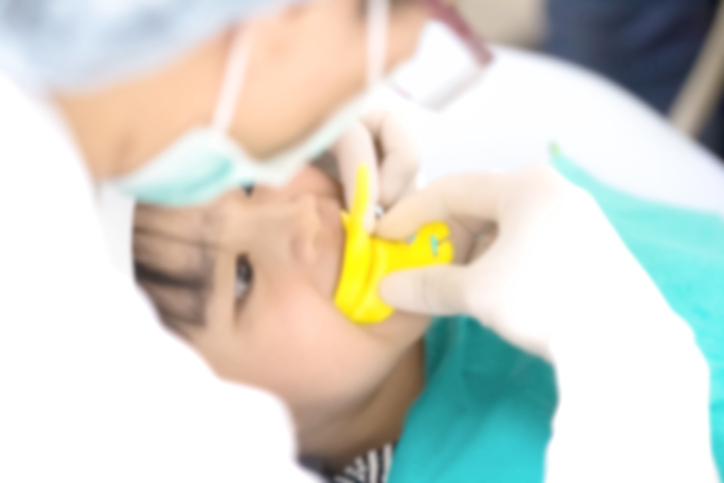
The Main Takeaway Regarding Fluoride Rinses and Treatments
Interestingly, we naturally consume fluoride through specific foods and tap water. Fluoride treatments are considered additional measures taken to help those with a higher risk of developing dental caries and cavities. Choosing to get fluoride treatments, whether professionally administered or done with at-home dental products, depends on various factors—including the state of a client’s oral health, their diet, and their dental hygiene routine.
The use of fluoride in dental products is generally safe, with its benefits typically outweighing its rare side effects. That said, having these discussions with clients is an essential step in providing the best dental care possible.
Are you interested in going to a dental assistant college?
Contact Medix College for more information!
What Those With Dental Assistant Training Should Know About Charcoal Toothpaste
November 24, 2020 It seems like overnight our pharmacies and grocery stores became filled with a vast range of activated charcoal-based cosmetic products. All kinds of new products—from facial creams to blemish-fighting solutions, masks and facial peels, and shampoos and conditioners—are now touting the benefits of activated charcoal. There’s also a huge range of dental products containing the ingredient, from toothbrushes to floss, mouthwashes, and toothpastes.
It seems like overnight our pharmacies and grocery stores became filled with a vast range of activated charcoal-based cosmetic products. All kinds of new products—from facial creams to blemish-fighting solutions, masks and facial peels, and shampoos and conditioners—are now touting the benefits of activated charcoal. There’s also a huge range of dental products containing the ingredient, from toothbrushes to floss, mouthwashes, and toothpastes.
As this new wave of dental products has come on the scene, lots of people—including high-profile celebrities and social media influencers—have been raving about them as a budget-friendly, natural alternative to peroxide for tooth whitening. But some dental health experts and researchers have since warned the public that these products may not be all they think they are.

An Examination of the Main Ingredient for Students in Dental Assistant College
The activated charcoal ingredient found in all of these beauty and dental products comes from the likes of coal, peat, wood, nutshells, and bamboo. Activated charcoal differs in that it’s heated in the presence of gas, causing the substance to develop pores that can serve to trap chemicals and prevent them from being absorbed.
Because of this toxin-removing capability, activated charcoal has long been used orally as an effective method of treating poisoning and overdoses, and is also sometimes used to treat upset stomach and even hangovers. Consumers are largely attracted to charcoal-containing toothpastes because of manufacturer claims about the ingredient’s potential to both whiten teeth and detoxify the mouth.
Activated charcoal is added to most toothpastes in the form of a fine powder
Do Charcoal Toothpastes Actually Whiten Teeth?
Students in dental assistant school will be interested in the results of a 2017 scientific dental journal study that showed more than 95% of charcoal toothpaste manufacturers claimed their products had whitening benefits. More than 45% of them also claimed the benefit of mouth detoxification, with labels such as “anti-fungal” and “anti-bacterial” often found on the packaging. But dental professionals around the world today are saying there’s no study-based scientific evidence to prove these claims, with some research overwhelmingly disproving them.

Why Are Some Dental Health Experts Warning Against the Use of These Toothpastes?
Some dental health professionals have expressed concern that the abrasive nature of the fine activated charcoal powders added to dental products may be harmful to tooth enamel, possibly weakening teeth and harming gums with long-term use. As an added potential harm, researchers say many charcoal containing toothpastes omit fluoride—the key ingredient needed for combating tooth decay.
Additionally, students of dental assistant training should be aware that both the safety and toxicity of many of these toothpastes remain untested. This is concerning amid the revelation by researchers that charcoal contains no less than four hydrocarbons, and that many charcoal toothpastes also contain bentonite clay—all recognized by government health authorities as possible carcinogens.
Activated charcoal appears to have its place in the health industry for preventing chemical absorption, but additional research seems needed to prove its effectiveness and safety when used in dental products. With this in mind, many dentists will still prefer to recommend peroxide-based products for budget-friendly whitening, due to their proven effectiveness and safety.
Are you interested in pursuing a career in the dental industry?
Contact Medix College to learn more about their dental assistant college diploma program!
What Those With Dental Administration Training Should Know About Dental Anxiety
October 09, 2020 Most people don’t rate dental visits as an enjoyable experience—even so, they’ll routinely schedule and attend their dental appointments once or twice a year as a matter of maintaining good oral health.
Most people don’t rate dental visits as an enjoyable experience—even so, they’ll routinely schedule and attend their dental appointments once or twice a year as a matter of maintaining good oral health.
For others, the very idea of going to the dentist is a non-negotiable. Not only will they neglect to make regular dental checkups–due to their anxieties surrounding these visits–but they may even refuse or put off treatment altogether. This may occur even when it’s absolutely needed for addressing pain or some other kind of dental issue.
By avoiding going to the dentist, a small dental issue can become severe, posing a real threat to the person’s health. To prevent worst-case scenarios, dental health professionals can be of assistance by making the dental visit as pleasant and comfortable as possible for clients while being on the lookout for signs of anxiety to calm their fears.
To understand more about dental anxiety, let’s take a look at the condition.
What Is Dental Anxiety and What Causes It?
Anytime someone feels fear, anxiety, or stress in a dental environment, we can call this dental anxiety. Unlike standard butterflies, those with dental administration training should be aware of the more extreme version of the anxiety, which causes the sufferer to avoid and delay treatment.
Affecting people of all ages, dental anxiety is usually caused by associations with some of the standard instruments of dentistry. Drills, pliers, and needles are examples of items that tend to preoccupy the mind of the sufferer, also acting as triggers of anxious thoughts. Standard smells and noises of the dental clinic can also be strong triggers. The fear may have been caused by a particularly traumatic dental checkup, but can also be due to generalized anxiety, the fear of losing control, or other anxious conditions triggered by the dental environment such as claustrophobia or obsessive-compulsive disorder.

What Are the Symptoms of Dental Anxiety?
Dental anxiety may quickly reveal itself to a person who’s attended dental office administration college, with the sufferer displaying obvious signs of panic from the time of arrival. In the waiting room, they may be shaking, tapping their foot nervously, hyperventilating, or sweating. Visible signs of distress in young children may include crying or extreme withdrawal.
Other symptoms of the condition will not be as obvious, such as an upset stomach, hot flashes, the use of humour or excessive chattiness to cover up fear, a racing heartbeat, palpitations, and lowered blood pressure, which can sometimes lead to fainting.
What Are the Repercussions of Ongoing Dental-Related Anxiety?
People who are fearful of going to the dentist may widen the gap more and more between visits, creating a vicious cycle of dental anxiety. The less frequently they go, the imagined fear surrounding each visit intensifies, causing them to put off going all the more. Clients with extreme anxiety may not have been to the dentist for years, and in some cases even decades.
Routine cleanings and screenings are crucial for preventing cavities, gum disease, and many other harmful dental issues. Putting off cleanings puts a client at risk of developing major dental problems, requiring complex treatment. A lack of proper oral hygiene can also lead to many other health problems, including heart disease, diabetes, and respiratory disease.

How Can It Be Addressed and Treated?
Parents of children with a dental phobia will often work together with the dental team to find ways to manage the situation, which can be as simple as fostering a more pleasant environment on future visits to include some kind of reward-based positive reinforcement.
Dental teams can also assist adults with ongoing fears, often including open discussions on creating environments for visits that are as trigger-free as possible. The dentist may advise relaxation therapy, which may include counselling, meditation, deep breathing, or distraction through the use of music or screens. Clients requiring intense dental work may require more interventive treatment methods for combating their fears, such as the use of anxiety relieving medications, nitrous oxide, or even general anesthesia for more serious procedures.
How Can Those with Dental Administration Training Help?
All members of the dental practice team, including dental office staff, have an important role to play in preventing dental anxiety in the client. The dental office administrator can help by creating a pleasant environment the moment a client arrives. They can also assist with identifying sufferers so that a treatment plan may be suggested to help allay fears and foster a quick return to routine dental screening.
Are you interested in pursuing a career in the dental industry?
Contact Medix College to learn more about our dental office administration diploma program!
